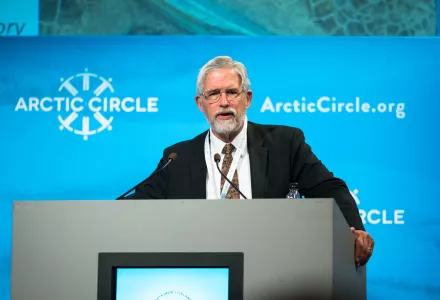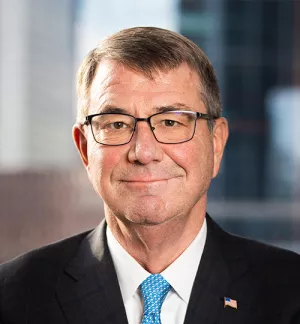
As one of few scientist professors at Harvard Kennedy School in the 1980s, I sometimes gave a lecture on climate change in the School’s only survey course on technology. At the time, the issue struck many of my students as exotic and somewhat obscure.
But with the arrival of fellow physicist John Holdren in the 1990s to head the Belfer Center’s Science, Technology, and Public Policy project, climate change became a Center focal point. Today, the Kennedy School offers a diverse array of climate-related courses and research.
The harmful effects of unchecked carbon emissions are now well integrated into public policy and debate, in large part because of the tireless work by John who took a leave from the Kennedy School from 2009–2016 to serve as President Obama’s Science Advisor.
From the control of nuclear fissile material and energy policy to R&D, economic competitiveness, and climate change, John has brought lasting impact to virtually the entire range of technology and public purpose.
Government service in Washington is exhausting, but John served as Director of the White House Office of Science and Technology Policy and as Science Advisor for eight years. In doing so, he helped set in motion some of the most consequential environmental initiatives in history. Decades hence, we’ll all thank him for his unstinting commitment to far-sighted policies.
Today, we’re mindful that progress is not assured. Political winds shift; agreements can be broken. Since the best remedy for anxiety is action, John has redoubled his efforts since his return to the School and the Belfer Center in 2016. Together with his colleagues Bill Clark, David Keith, Henry Lee, Halla Hrund Logadóttir, Venky Narayanamurti, Dan Schrag, and Rob Stavins, John is leveraging Harvard’s unmatched convening power to confront this urgent challenge. Just last month, he co-led a delegation including 24 Harvard students to Iceland as part of the Arctic Circle Assembly. Far beyond taking notes, these students met with the president of Iceland and the interior minister for Arctic affairs and presented ideas to 2,000 government officials, scientific leaders, and NGOs from all over the Northern Hemisphere.
In Iceland, these students saw firsthand what John has long known: climate change isn’t a theory, prediction, or trend—it’s a dramatic reality caused by carbon and other changes that is disrupting everything from navigation and trade to national security, indigenous communities, and resource management. Thanks to John, we still have a chance to make a difference before it’s too late.
* * *
The Belfer Center is growing, and I want to extend a few special welcomes to people and programs that have recently joined our family:
- Aditi Kumar is our new Executive Director.
- digital HKS, led by David Eaves, strengthens our already formidable research in this area.
- The esteemed National Security Fellows program, run by Gen. Bill Rapp, is now officially part of the Belfer Center.
- The Korea Project, led by John Park, deepens our security work in northeast Asia.
- Laura Manley is the inaugural Director of the Technology and Public Purpose Project.
Carter, Ash. “From the Director - Ash Carter.” Fall/Winter 2018-2019


